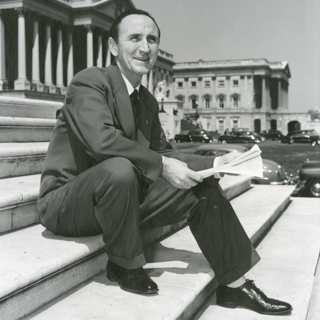10-4-20
October 4, 2020
Op-ed: Honoring American democracy through civil discourse
By Deena Mansour
As a first generation American and child of Egyptian immigrants, I was raised to believe that the United States was the best country in the world. While we wove our Egyptian heritage into our lives in rural Iowa, Mississippi, and Wyoming, there was a clear reason my family came here. One could dismiss it as a simple desire for economic opportunity, but the real genesis of my parents’ move was their attraction to American democracy. In particular, it was their belief that what separated our democracy from other systems was its commitment to solving differences through dialogue. In America, people were committed to civil discourse: citizens gathered, listened, debated, and chose the best path forward for the common good.
My own support for these democratic principles was reinforced through my experiences overseas, including as a diplomat representing our country in Indonesia. Despite the similarities in our mottos of E Pluribus Unum (Out of Many, One), and Bhinneka Tunggal Ika (Unity in Diversity), American discourse was unique: it was truthful, productive, and informed our governance. No country is perfect, and I saw our flaws. Regardless, I maintained my pride in the American experiment, and was honored to represent our country overseas.
Yet Montana’s greatest statesman, Senator Mike Mansfield, cautioned that maintaining democratic principles was a constant challenge. In 1963, he advised that, “… I would point out that the contact among peoples and among nations during the past quarter of a century has also brought with it one great negative result. It has brought an increase in human hostility. Whatever the compound of fear, lack of understanding, aggressiveness and arrogance which has produced this hostility, it is a most dangerous phenomenon.” Fast forward to contemporary America. Not surprisingly, the Pew Research Center finds that a majority of Americans believe that the nature of political debate in the U.S. has become more negative, less respectful, and less fact-based. Discussing the issues of the day has become, more so than at any other point in our lifetimes, frequently stressful, frustrating, and, frankly, exhausting.
The Mansfield Center was created by an Act of Congress to support ethics in public affairs and international engagement: in essence, to serve as a center for the study and maintenance of democracy. This mandate has been bolstered by UM Political Science Professor Rob Saldin’s Project for American Democracy and Citizenship. We are committed to bringing community together to discuss critical issues, and have therefore designed a series of virtual dialogues to foster this important civil discourse:
Oct. 8: “The Legacy of Justice Ruth Bader Ginsburg,” featuring her former law clerk, UW Professor Elizabeth Porter.
Oct. 14: “The Never Trump Revolt and the Future of American Democracy,” featuring Never Trump co-author Rob Saldin.
Oct. 21: “Jim Messina: An Insider Assessment of the 2020 Election.”
Oct. 28: “Japan-US-China and Indo-Pacific Diplomacy,” featuring Kanagawa University Professor Mie Oba.
Nov. 4: “Election Post-Mortem” featuring analysts Sally Mauk, Holly Michels and Rob Saldin.
Nov. 18: “The Myth of Chinese Capitalism,” featuring Dexter Roberts and former Radio Free Asia head Bay Fang, on global implications of rising income inequality and social tensions in China.
Dec. 2: “Montana Legislative Session Preview”
Dec. 16: “Cold War Imperialism: U.S.-Backed Anticommunism Movements and The Jakarta Method,” with The Jakarta Method author Vincent Bevins and Indonesian human rights advocate Andreas Harsono.
The University of Montana has a unique role in both our community’s exploration of ideas and its engagement in critical thinking and ethical living. We encourage you to engage in our Dialogues and reaffirm the great tradition of respectful American civil discourse. To register or learn more, see www.umt.edu/mansfield.
Deena Mansour is the Executive Director of the Maureen and Mike Mansfield Center of the University of Montana.
Originally published in the Missoulian.
